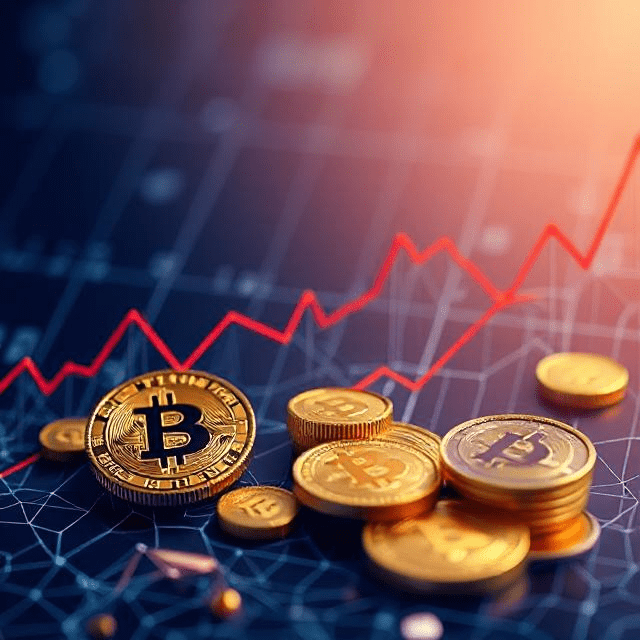
Cryptocurrency has taken the world by storm, offering unprecedented returns, revolutionary technology, and a new way to think about money. But along with the hype and innovation, one question continues to spark debate: Is investing in crypto considered gambling?
Some see crypto as the future of finance. Others see it as a digital casino. The truth? It lies somewhere in between. In this blog, we’ll explore the differences and similarities between investing in crypto and traditional gambling, and help you determine where you stand on this increasingly relevant question.
What Is Gambling?
To understand whether investing in crypto is gambling, we first need to define what gambling actually is.
Gambling involves staking money on an event with an uncertain outcome in the hope of winning more money. Common characteristics include:
- Chance-based outcomes
- Risk of loss
- Potential reward
Games like roulette, poker, and slot machines are classic examples. You place a bet, and the outcome is largely out of your control. While skill may influence some games, chance plays a dominant role.
What Is Crypto Investing?
Crypto investing typically involves buying digital assets like Bitcoin, Ethereum, or altcoins with the expectation that their value will rise over time. People invest in crypto for various reasons:
- Belief in blockchain technology
- Potential for high returns
- Diversification of assets
- Decentralized finance (DeFi) opportunities
Unlike traditional assets like stocks or bonds, crypto is relatively new and highly volatile, making its price movements unpredictable and, for some, thrilling.
Where the Line Blurs: Crypto vs Gambling
So, is investing in crypto like gambling? Let’s break down some of the similarities:
1. Volatility and Risk
Both crypto and gambling involve high levels of risk. The crypto market is known for its extreme fluctuations. Bitcoin can drop 10% in a day, and smaller coins can gain or lose 50% overnight.
Similarly, gambling outcomes can swing wildly from big wins to devastating losses.
Key Point: If you invest in crypto without understanding the market or doing research, you’re essentially speculating, similar to making a blind bet at a casino.
2. Emotional Decision-Making
Crypto investors often experience FOMO (Fear of Missing Out), panic selling, or hype-driven buying—behaviors commonly seen in gambling environments. Emotions can cloud judgment and lead to impulsive decisions.
In both crypto and gambling, discipline matters.
3. Potential for Addiction
The thrill of quick gains can be addictive. Just like problem gambling, crypto trading addiction is becoming more recognized by psychologists and financial advisors. The 24/7 nature of the crypto market can feed compulsive behaviors.
Where Crypto Investing Is Different from Gambling
Now, let’s look at the key differences because crypto is not just gambling.
1. Asset Ownership
When you invest in cryptocurrency, you own a digital asset. It’s yours, and it has value (whether rising or falling). In gambling, once you place a bet, the money is gone—you don’t own anything unless you win.
2. Research & Strategy
Crypto investing can be informed by market research, technical analysis, and understanding of technology. Investors can study trends, tokenomics, whitepapers, and real-world use cases to make strategic decisions.
Gambling, particularly games of chance like roulette or slots, rarely allow for long-term strategy or research-based advantage.
3. Long-Term Potential
Cryptocurrencies like Bitcoin and Ethereum have demonstrated long-term value growth. While not guaranteed, they are being integrated into payment systems, DeFi, and digital identity solutions.
Gambling, by contrast, is generally short-term. You’re not building equity or ownership—you’re hoping for a win in a single play or session.
When Does Crypto Become Gambling?
Here’s where the line gets blurry. Crypto investing can become gambling depending on how it’s approached. Here are a few red flags that you’re gambling, not investing:
- You’re chasing losses with higher risk coins (“shitcoins”).
- You invest based on rumors, hype, or TikTok trends—not research.
- You constantly check prices and make impulsive trades.
- You’re borrowing money to trade.
- You’re trading derivatives (like crypto futures) with no risk management.
If you’re treating crypto like a get-rich-quick scheme, you’re no longer investing—you’re gambling.
Responsible Crypto Investing Tips
If you want to invest in crypto without crossing into gambling territory, here’s how to approach it:
- Do Your Research
Understand what the project is, who’s behind it, and what problem it solves. Read whitepapers, track use cases, and stay updated on the industry.
- Invest What You Can Afford to Lose
Crypto is high-risk. Never invest money you can’t afford to lose. This simple rule separates investors from gamblers.
- Diversify Your Portfolio
Don’t put everything into one coin. Spread your risk across projects and consider balancing crypto with traditional investments.
- Set Clear Goals
Are you investing for the long term? Looking to hold for 5+ years? Have a clear strategy, and avoid making decisions based on short-term emotions.
- Use Cold Storage
Protect your crypto assets with hardware wallets and secure backups. Security is part of smart investing.
Is Crypto Gambling?
| Aspect | Crypto Investing | Gambling |
| Asset Ownership | ✅ Yes | ❌ No |
| Informed Decisions | ✅ Research-based | ❌ Mostly chance |
| Long-Term Potential | ✅ Yes | ❌ No |
| Risk Level | ⚠️ High | ⚠️ High |
| Addiction Potential | ⚠️ Possible | ⚠️ Common |
| Regulatory Oversight | ⚠️ Growing | ✅ Regulated |
Crypto investing isn’t gambling by default, but it can become gambling when done recklessly. The key difference lies in intent, knowledge, and behavior. If you treat crypto like an investment, do your research, manage risk, and stay disciplined. It can be a legitimate part of your financial strategy. But if you’re chasing fast gains with little understanding, you may just be spinning the wheel.













